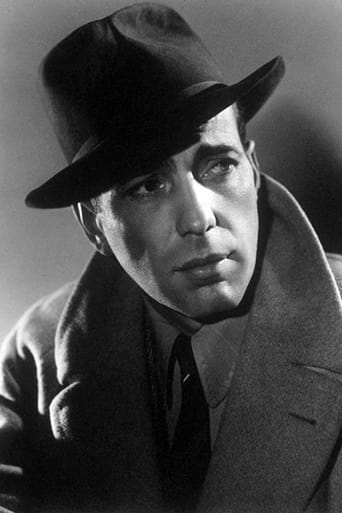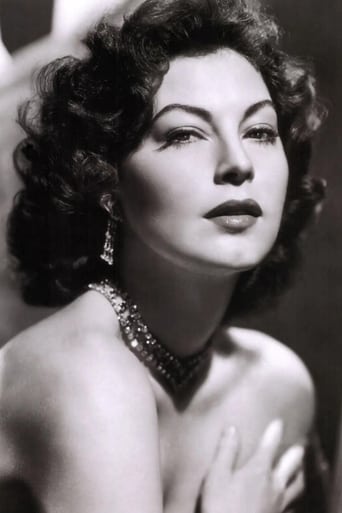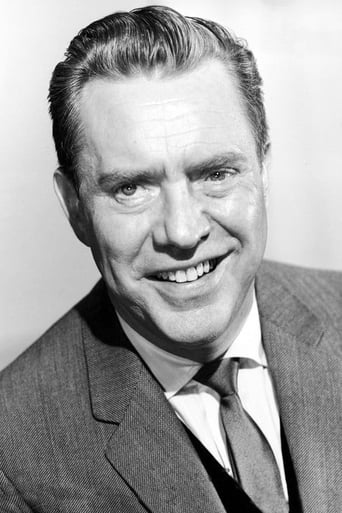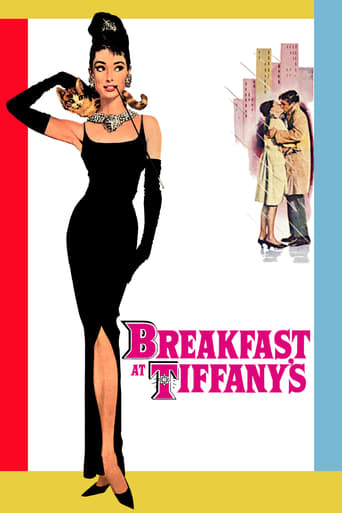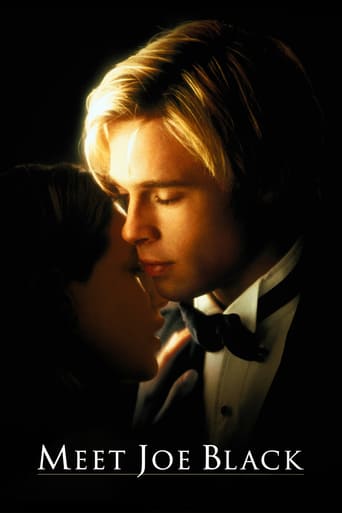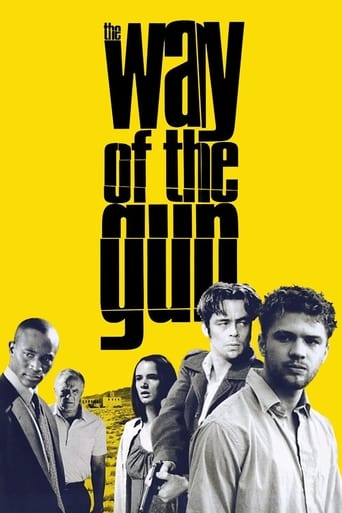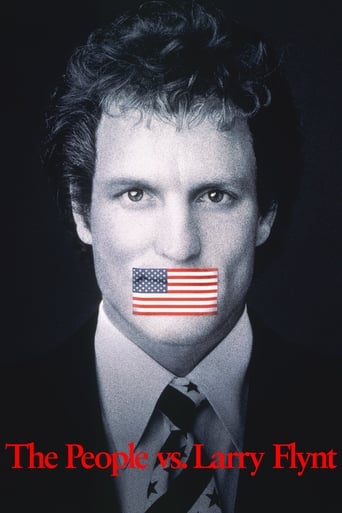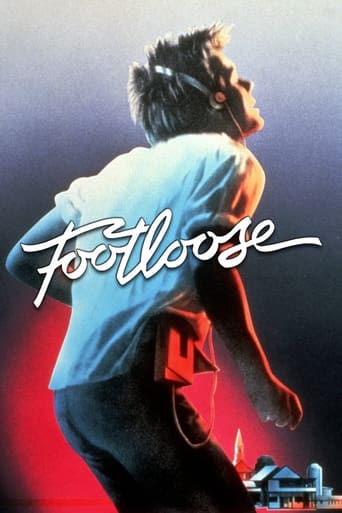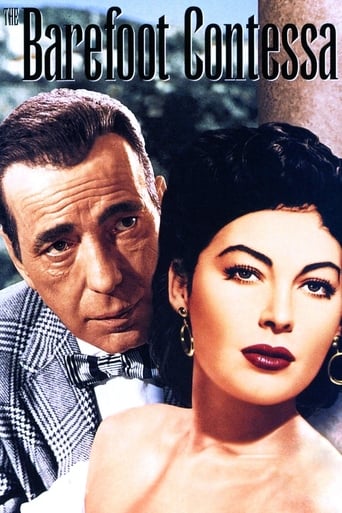
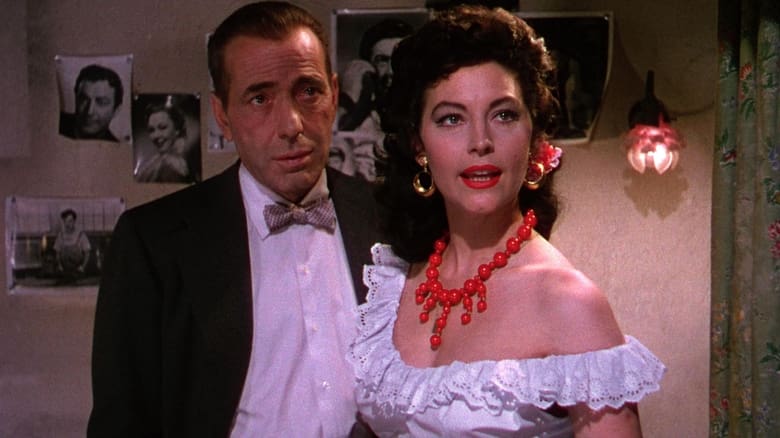
 Watch Now
Watch Now





The Barefoot Contessa (1954)
 Watch Now
Watch Now





Has-been director Harry Dawes gets a new lease on his career when the independently wealthy tycoon Kirk Edwards hires him to write and direct a film. They go to Madrid to find Maria Vargas, a dancer who will star in the film.
Watch Trailer
Cast


Similar titles
Reviews
This movie is the proof that the world is becoming a sick and dumb place
Did you people see the same film I saw?
best movie i've ever seen.
An old-fashioned movie made with new-fashioned finesse.
I had often wondered why it took so long to finally catch up with 'Contessa' now I think perhaps I understand. This must have either played to half filled movie houses or emptied them rather quickly. The undeniably multi-talented Joeseph L. Mankiewicz must have been hoping to cash in on his earlier success with the similarly themed 'All About Eve' here, he transfers the setting from Broadway to Hollywood - but with very different results. Where Eve bristled, Contessa fizzles out like Champaign left uncorked overnight. Gardener only had to look delicious (for those who like their women overly thin) and it often seemed as if she was taking her lines from a prompter. Bogart (foolishly chain smoking) is well cast but looks very unwell and perhaps not comfortable with some of his lines. He fares best of all the cast - even though, surprisingly, Edmond O'Brian took the acting Oscar for his overcooked portrayal as the soulless producers press assistant (what were the Academy thinking?) Jack Cardiff's location footage glistens but is rarely allowed to shine -saddled with a turgid script that flounders ponderously under its somewhat melodramatic themes. How this painfully obvious treatment garnered so many Rotten Tomato raves is quite beyond belief. Many of the press reviews of the day were more on-the-money, along with numerous IMDb users comments. Not the best representation of its day and coming in at 2hr 10mins way too long to maintain complete interest. Maybe OK for lovers of the stars or movies about Hollywood, although I think "The Big Knife" may have summed much of it up with less gloss & more succinctly.
This Director is OK as a director and has directed some great films, but is generally not so good as a writer. This one is spectacularly bad. He did write and direct the very successful "People will talk", but that had originally been written as a play by someone else, so he was really mainly being a director. Also, "Barefoot" was an inside Hollywood story by a Hollywood insider, and so perhaps he lost his objectivity. They say that autobiographies are nearly always bad.
. . . from THE SUN ALSO RISES to SUNSET BLVD., Ava Gardner's THE BAREFOOT CONTESSA makes one yearn to see the Jennifer Coolidge version of C!NDERELLA again. At least there weren't a dozen foreigners mangling the English language in the latter flick. A color film with Noirish pretensions, THE BAREFOOT CONTESSA telegraphs its "big reveal" from miles away, and pulls all of its punches more than any ROCKY movie. It tries to be all things to all people, but ends up being a pale imitation of everything in which it chooses to dabble. Gardner's "Maria" character is way too inscrutable to follow in the footsteps of A STAR IS BORN. Viewers do not appreciate being bludgeoned with the Eurotrash metaphor of castrated nobility any more than Maria does here on her wedding night. Humphrey Bogart as Maria's confessor Harry takes an apparent mid-movie chemotherapy break, which is quite jarring, as it replaces the best thing this feature has going for it with the unintelligible gibberish of substitute voice-over narrators. THE BAREFOOT CONTESSA is a gab fest from the get-go, but at least it begins in spoken American. Oscar winner Edmond O'Brien is a hoot as the sweaty "Oscar Muldoon" PR flak, but he's not around enough to save this misfire.
"Life, every now and then, behaves as though it had seen too many bad movies". Coming from Joseph L. Mankiewicz, as accomplished a writer as a director, this remarkable preterition works like a clever warning: don't get too fast on accusing the script to be too formulaic, talky or hackneyed, "The Barefoot Contessa" is set in a world of pretension, from Hollywood to the European jet-set, behavior is dictated by predefined codes, by a person's aura or by a hierarchy that never tells its name, whose people are all characters guided by the writing and directing of a divine instance, called fate.But I must say I was disappointed when I learned that the story of Maria Vargas, "The Barefoot Contessa", was based on Rita Hayworth, or some actress named Anne Chevalier. It was too great a coincidence but I thought it was meant to be from and of Ava Gardner, and only Ava Gardner, for her biography is one of these peculiar cases when reality is strangely more fascinating than fiction, especially when the kind of fiction we're talking about is fairy tale. Now I even realize that "The Barefoot Cinderella" who'd have been quite a fitting title, if only to sustain the idea that this was a princess who had everything to triumph over adversity, looks, heart and that inspiring sparkle in the eye, but no Prince at all and what more tragic than a Cinderella remaining barefoot? And Ava Gardner was that kind of Cinderella-figure. She was uniquely beautiful; she was revered as one of the most beautiful actresses of the world, if not the most. And despite all the looks she had, and the stardom she was brought to, she never felt totally happy, she had only three men, no children, and left the silver screen with mixed memories. How can a woman blessed by such a voluptuous body and illuminating face, kept such a miserable opinion on a success served on a silver, no, golden plate? That's the kind of mystery "The Barefoot Contessa" tries to give answers, and if seriously, they didn't think about Gardner before writing the story, then her casting, is quite a strike of genius.The film opens when producer Kirk Edwards comes to a Spanish bar with his publicist Oscar Muldoon (Oscar-winning Edmund O'Brien) and director-writer Harry Dawes (Humphrey Bogart) to find a new face. They heard of a beautiful dancer named Maria Vargas but she trusts neither of Edwards or Muldoon. It's to Dawes that she finally opens her heart, expressing her fear of success, her eagerness to keep her feet on the dirt, as if the heights of success would make her dizzy. She likes movies though, but she doesn't trust herself, nor her capability to find love in this world, let alone there. This is not the little girl from Madrid slums talking, this is the earthy daughter of North Carolina who loved to go barefoot before luck brought her to MGM. But Cinema for Dawes is as unimaginable without Maria than ours without Ava, he convinces her give happiness the benefit of the doubt.The relationship between Dawes and Maria is particularly poignant and given the two actor's age more acceptable than Bogart with Hepburn in the film of the same year "Sabrina". Maria is a beautiful flower waiting to bloom and Dawes her guardian angel. But after three movies made together, she was able to fly with her own wings, and became a star among the stars, as admired as envied. The story is told from flashbacks during her funereal from Dawes, Muldoon and Maria's two lovers, a frivolous Latin American playboy Alberto Bravano (Marius Goring), and Count Vincenzo Torlato-Favrini (Rossano Brazzi). And what is interesting is less the relationship she has with these men than the way she gets into and out off one's arms, before her tragic ending.All through the film, we never know to which extent Maria lead her destiny, she's indeed a fairy-tale heroine with enough determination and courage to seize the situation but still guided by destiny. She was reluctant to go with Bravano, but only because Edwards forbid her, she challenged him. Then she challenges Bravano, by turning her back on the decadence of casinos and jet-set, and still dance on the mud near a Gypsy camp and this is where the Count meets her. The Counts has everything of a Charming Prince, but seems to hold a terrible secret, which would ultimately seal Maria's fate, the one that kept Cinderella forever barefoot, and to which the erected statue plays like a poignant epitaph.It's true that some choices, some actions are questionable given the context of the film, and their purposes seem to be their convenience to a plot leading to its tragic conclusion, but it's all in the 'bad movies' line as if Maria's life was in fact, the worst movie she ever made, and when every now and then, someone utters a kind of corny line, it's like the screenwriter apologizing in advance. That whole intricacy between reality and fiction is cleverly handled, which is not surprising coming from the director of "All About Eve", whom the film borrows some elements through the opening and the different perspective of Maria's life from the others' perspective. "All About Eve" remains superior if only because it had the perfect balance between action and talk, I must admit in "Barefoot Contessa", Mankiewciz took our patience for granted, which didn't leave much screen time to the most dramatic and poignant parts. Appreciating "The Barefoot Contessa" is understanding some bits of Ava Gardner, an unusual star who despised her stardom because she felt there was more to life than playing the star, and incongruously, that kind of attitude made her an even more glorious star, because paraphrasing Bogie, that's the stuff great movies are made on.


